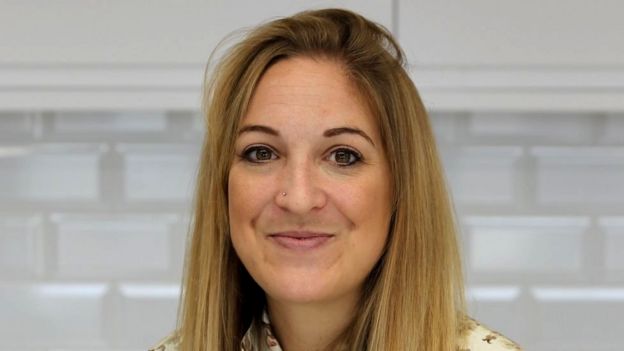 GETTY IMAGES
GETTY IMAGES
Some 8.4 million workers are now covered by the government's furlough scheme, up from eight million a week earlier, the Treasury has said.
Claims for subsidies filed by employers rose to £15bn from £11.1bn, it added.
The scheme, brought in to mitigate the effects of coronavirus, allows employees to receive 80% of their monthly salary up to £2,500.
A similar scheme for self-employed workers saw 2.3 million claims made worth £6.8bn.
The Self-Employed Income Support Scheme, as it is known, differs from the furlough scheme because it is a grant paid out in a single instalment covering three months and amounting to 80% of average profit.
The furlough scheme, officially called the Coronavirus Job Retention Scheme, was originally intended to last until the end of July, but has now been extended until the end of October.
Chancellor Rishi Sunak has confirmed that it will continue to provide the same level of earnings, but has said the government will ask companies to "start sharing" the cost of the scheme from August.
Sources have told the BBC the Treasury still expects to be paying more than half the costs between August and October.

'I'm one of the people who slipped through the cracks'
 SIAN MELONIE
SIAN MELONIE
Marketing professional Sian Melonie, from Hackney in east London, is one of the many people who, through no fault of their own, are not in a position to benefit from the government's furlough scheme or its help for self-employed workers.
After 12 years in work, she decided to go self-employed last year and began working for a large cinema group.
She was due to start a fixed-term contract from 30 March, but that offer was withdrawn when the pandemic hit.
"l don't qualify for any support. I can't be furloughed and I don't qualify for self-employed benefits, because I'm new to it," she told the BBC. "I'm one of the people who slipped through the cracks."
But Sian says she is not angry and is using her savings to tide her over. "However, my concern is how much longer it goes on for, because l am essentially spending what l had saved for my self-assessment tax for later this year.
"I'm hoping things get back to normal and the economy can bounce back."

Recent figures from the government's independent economic forecaster, the Office for Budget Responsibility, indicate that the cost of the government's efforts to combat the coronavirus pandemic is expected to hit £123.2bn.

The wages for nearly 11 million jobs are currently being paid by the taxpayer amid the still ongoing pandemic shutdowns. Supporting a third of all jobs at £22bn bill so far is still believed to represent value for money by the Government.
The 8.4 million on the furlough scheme have kept their contractual relationship with their bosses. Those jobs can be "switched back on" as lockdowns are lifted. Not all of them will be, but it has been an incredible logistical effort from HMRC to process this. And in the next few days the Treasury will announce that employers will enjoy more flexibility, enabling them to bring back furloughed workers part time.
They will though, get a smaller rate of subsidy from August.
However, the self employment scheme remains due for expiry within days.
The level of unemployment - which has been kept much lower than it would have been - will inevitably go up as support is phased away.
But Downing Street appears to have developed a taste for such intervention. With recovery like to take longer than originally hoped, versions of such schemes are likely to be with us for some time.

The OBR expects annual borrowing to equal 15.2% of the UK economy, which would be the highest since the 22.1% seen at the end of World War Two.
It said it had increased its estimate because of the rising cost of the furlough scheme.
If you have been affected by the furlough scheme, email:haveyoursay@bbc.co.uk.
No comments:
Post a Comment